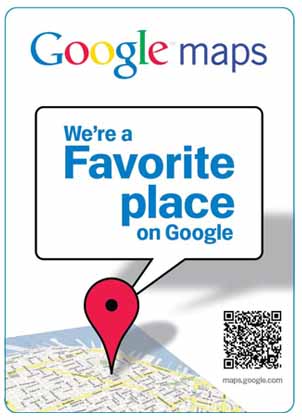Even though local search is still not a globally relevant feature, if you’re seeking to establish the online presence of your emerging business, then it’s probably in your (or your clients’) best interest to understand how the process works. Unfortunately, however, this mechanism is not as transparent as one would hope it would be. The more cynical SEO experts would add that this is all in good Google tradition: after all, why would they make local search result rankings easy to understand, when every other algorithm they use is obscurely complex?

Snide comments aside, while local search results work according to a somewhat counterintuitive pattern, there are still plenty of resources out there to help you get a grasp of what matters and what doesn’t, in your quest to drive a business to the top rank in the local business search queries. Here are our three top tips:
Get your basic details right
Sounds simple enough, doesn’t it? Just put in your correct address, one or two phone numbers, a web page and you’re good to go. In fact, Google business listings work nothing like that. It would make perfect sense for them to allow business owners to modify these details from their Google profile. In actuality, however, Google pools its data from several sources and deposits it into one big data cluster. It will look at the details you have provided to your national business directory organization. In the United States, there are three major agencies which collect such data. Then it will filter out the basics, but also check with data they get from Google Street View. Ultimately, the details will be verified by human operators – who might even call your business, if they suspect the data doesn’t check out. So you need to make absolutely sure that all your Geo-modifiers are accurate and that the information is complete.
Understand how users search for businesses
This SEO 101 principle certainly applies to business listings. A local consumer panel, which analyzed the responses of 1,250 consumers, found that 59 per cent of users search for reviews and tips on local businesses via Google each month. 71 per cent find Local search results relevant and credit them as valuable and trustworthy. 60 per cent of those in this category will also tend to place more trust in a business whose listing also includes a photograph. 54 per cent of searchers will also add a geographical modifier to their query, be it a town and/or state name, as well as a ZIP code. There are several takeaways from this survey that local businesses need to bear in mind. Younger searchers will use modifiers to a lesser extent, compared to older ones. As such, it’s important to know who your local search campaign is targeting. For younger audiences, focus on generic terms more than on geo-modifiers.
Google offers a blend of organic and local for generic terms
An exercise in deconstructing the mechanism that leads to a particular order of listings in a SERP, recently undertaken by Moz.com’s Dr-Pete has revealed that Google will automatically include three local results on its seven result SERP for a generic term. This means that businesses which are well optimized for local searches might end up on an organic keyword search, if they’ve done their job right. Additionally, those businesses that aren’t yet very well optimized for organic searches (but have done some optimization in this respect) might improve their SERP ranking by tweaking their local listing SEO here and there. Since Google takes both local and organic optimization into account, there is a chance that they could jump to the forefront of the SERPs.
Now, rumor in the business is that Google’s Local search engine might have some serious competition – and not even from Bing or Yahoo. A much smaller and newer search engine that focuses on local business listings has hit the market and user feedback is overwhelmingly positive. Of course, with a new engine comes the issue of cracking a new algorithm; yet, for the time being, focus on the above three pointers and you will likely see some positive results.















